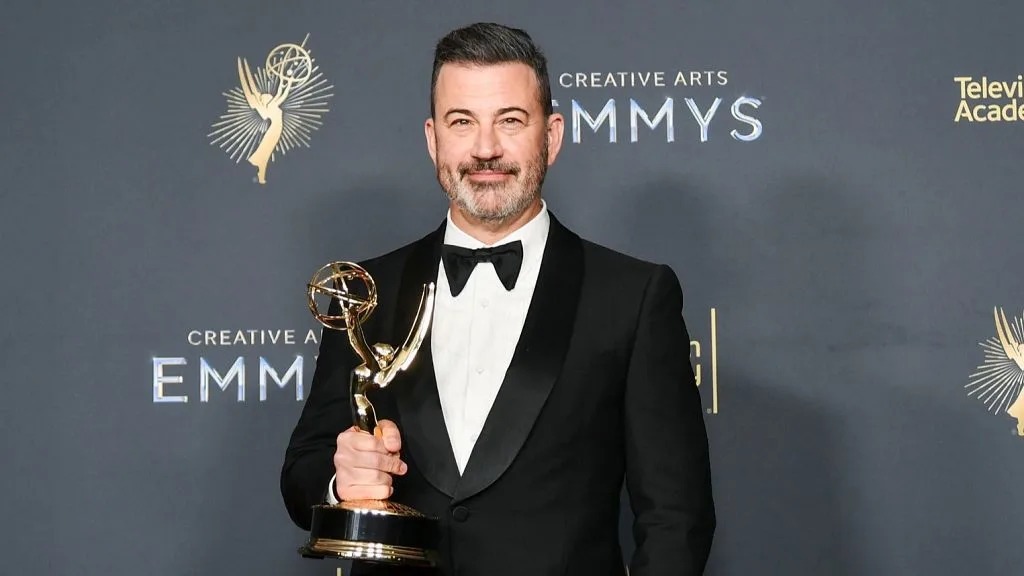The role of free speech in American media continues to generate strong debate, particularly when high-profile television hosts face suspensions or firings. Recent discussions have centered on MSNBC anchor Chris Hayes and his remarks about the suspension of Jimmy Kimmel, the longtime host of Jimmy Kimmel Live! on ABC.
Hayes’ commentary has drawn attention because it contrasts with views he previously expressed regarding the departure of former Fox News host Tucker Carlson. The debate highlights how questions of free expression, editorial responsibility, and corporate decision-making intersect in today’s media environment.
Background: Free Speech in Media
The First Amendment protects individuals from government restrictions on speech, but private companies—such as television networks—have the authority to decide what content they choose to broadcast. This distinction is often at the heart of debates about whether a suspension or firing constitutes a violation of “free speech” or simply reflects a business decision about programming and standards.
Television hosts, especially those with large national audiences, operate at the intersection of entertainment, commentary, and journalism. Their words can carry significant influence, which is why networks often weigh audience reactions, advertiser concerns, and public trust when addressing controversies.

Tucker Carlson’s Departure from Fox News
In April 2023, Fox News announced the departure of Tucker Carlson, one of its most prominent hosts. Carlson had built a reputation for his outspoken commentary on politics, culture, and media, attracting millions of viewers each night.
Reports from outlets including The New York Times and NPR noted that Carlson’s departure followed ongoing controversies surrounding his rhetoric and coverage of politically sensitive topics. While Fox News did not publicly specify the exact reasons, the decision came amid larger internal and external scrutiny.
At the time, MSNBC anchor Chris Hayes discussed the firing on his program, pointing out that television hosts who rely on divisive or inflammatory rhetoric often face consequences when their content no longer aligns with the standards of their networks or advertisers.

Jimmy Kimmel’s Suspension from ABC
Fast forward to 2025, and late-night host Jimmy Kimmel faced his own network suspension after making controversial remarks regarding the death of conservative activist Charlie Kirk. According to reports from multiple media outlets, ABC paused production of Jimmy Kimmel Live! following backlash over his comments.
The suspension sparked immediate debate, with critics questioning whether the decision reflected legitimate concerns about tone and sensitivity, or whether it raised broader issues about freedom of expression in entertainment.
For decades, late-night television has served as a platform for humor, political satire, and commentary. However, balancing comedy with respect for public tragedies remains a challenge, as networks often face competing pressures from viewers, advertisers, and advocacy groups.

Chris Hayes’ Response to the Kimmel Suspension
On his MSNBC program, Chris Hayes weighed in on ABC’s decision. He argued that suspending a comedian for controversial remarks risked undermining the principles of open debate and free expression. Hayes’ remarks emphasized that comedy has historically been a space where difficult subjects are addressed through satire, even if the delivery is uncomfortable for some audiences.
Critics, however, pointed out that Hayes’ defense of Kimmel contrasted with his earlier reaction to Carlson’s departure from Fox News. While Hayes viewed Carlson’s exit as a justifiable response to harmful rhetoric, his support for Kimmel appeared to some observers as a shift in his stance on when suspensions or firings are appropriate.
The Broader Debate on Consistency and Free Speech
This apparent contrast sparked discussion across media and political circles. Commentators questioned whether different standards are applied depending on the political leanings of the host involved.
For some, the comparison underscores a broader point: the line between free expression and corporate accountability is not always clear. Networks must balance their reputations, relationships with advertisers, and audience expectations, while also recognizing the importance of providing a platform for diverse voices.
Others argue that context matters. Carlson’s role as a prime-time news commentator placed him in a different category than Kimmel, a late-night comedian known for satire. From this perspective, Hayes’ comments about each case may reflect those distinctions rather than outright inconsistency.

The Role of Comedy in Public Debate
Late-night television has historically pushed boundaries, with figures such as George Carlin, Richard Pryor, and more recently Jon Stewart and Stephen Colbert using humor to comment on social and political issues. These programs often serve as cultural barometers, reflecting how comedy can spark conversations that go beyond entertainment.
However, the balance between satire and sensitivity remains delicate. Jokes that resonate with one segment of the audience may feel offensive or inappropriate to another, leaving networks in the difficult position of determining where to draw the line.
Public Reaction and Ongoing Discussion
The suspension of Jimmy Kimmel generated significant attention on social media, with supporters defending his right to comedic expression and critics arguing that the comments went too far. Similarly, Carlson’s departure continues to be cited as an example of how networks respond to prolonged controversy.
Chris Hayes’ commentary has therefore become part of a larger conversation about whether media figures apply consistent standards when evaluating these cases, or whether political perspectives shape their judgments.

Conclusion
Chris Hayes’ defense of Jimmy Kimmel, when contrasted with his earlier remarks about Tucker Carlson, illustrates the complexities of navigating free speech debates in modern media. While some see inconsistency, others view his comments as a reflection of the different roles and contexts involved.
What is clear is that these controversies continue to raise important questions about the responsibilities of media companies, the boundaries of comedy and commentary, and the enduring significance of free expression in American society.
As television networks adapt to shifting cultural expectations, the conversation about free speech, accountability, and editorial standards is unlikely to fade anytime soon.
